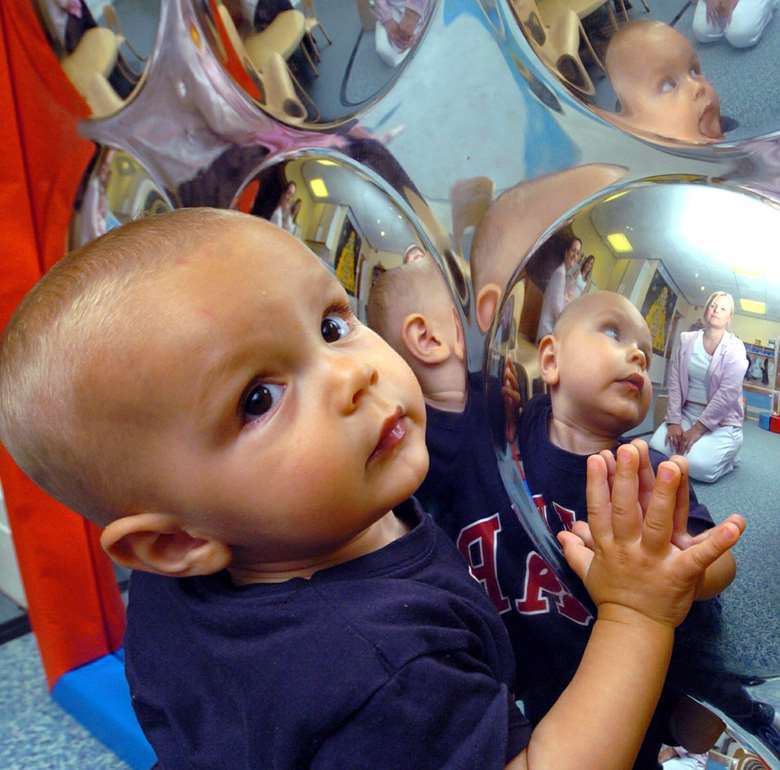Shortage of early years teachers 'risks developmental delay' for 800,000 children
Neil Puffett
Friday, February 17, 2017
As many as 800,000 children are at risk of starting school behind their peers in literacy and numeracy because of a shortage of early years teachers, a charity has warned.

Save the Children calculated the number of children at risk of not reaching a good level of development between 2016 and 2020 by using official population growth predictions to estimate numbers of children attending reception over the four-year period.
To reach the 800,000 figure it then factored in government statistics showing a shortage of 10,000 nursery teachers, and its own research from 2016, which found that children without an early years teacher are almost 10 per cent less likely to meet the expected levels of development when they start school.
It predicts that as many as 200,000 of these children could still be behind by the time they start secondary school, with "potentially devastating consequences for the rest of their schooling".
The report cites government statistics showing that boys and poor children are worst affected, with boys almost twice as likely to be behind as girls in language, and poor children more than twice as likely to be behind than their peers from wealthier backgrounds.
Meanwhile, a poll commissioned by the charity found that more than a quarter (28 per cent) of parents worry their child will start primary school behind in literacy and numeracy, and more than half (51 per cent) worried about sending their child to a nursery without a qualified teacher.
Save the Children has called on government to urgently address the shortage by investing in an early years teacher for every nursery, starting in the most deprived areas of the country.
Kevin Watkins, chief executive of Save the Children, said: "It's just not acceptable that in this day and age, so many children in England are falling behind before they even set foot in primary school - leaving them at risk of staying behind throughout their school years and into the world of work.
"Nurseries do an incredible job nurturing our children, but financial constraints are leaving many of them struggling to hire the qualified early years teachers who help give children the skills and confidence they need to learn and grow.
"The evidence clearly shows the huge and transformational difference early years teachers can make for children. That's why we're calling on government to ensure every nursery has a qualified teacher. It's an investment we must make to help every child reach their full potential."
The National Day Nurseries Association (NDNA) said the main reason that nurseries cannot employ more teachers is the "chronic underfunding" of free places for three- and four-year-olds. It said the vast majority of nurseries currently make a loss on these places - an average of £900 per year for each child - and don't have enough overall income to pay more graduate salaries.
Claire Schofield, director of membership, policy and communications at NDNA, said: "All qualified nursery practitioners contribute to the early education of under-fives, but lack of funding limits nurseries' abilities to employ more early years teachers. We agree that more government investment is needed and have been leading the way in campaigning for this.
Jan Dubiel, national director of Early Excellence, a company that works with more than 7,000 schools across the country to improve and develop their early years practice and provision, said the government must be ambitious with its plans for early education.
"A focus on recruiting more early years practitioners is welcome. However, the government must promote a pedagogical approach which takes into account all aspects of children's development including their physical and emotional wellbeing as well as academic success.
"Evidence that we are gathering through our Hundred Review of Reception Practice shows that early years education is of crucial importance to a child's development and has a significant impact on life chances.
"It's not simply about the quantity of early years teachers, it is also about the quality of early years provision. This is why we need a focus on good outcomes for children that is shaped around ensuring they get the best start in life."
The Save the Children report appears to contradict research published earlier this week by the London School of Economics, University of Surrey and University College London, which found that a child's educational achievement at the end of reception is only very slightly higher if he or she has been taught by a qualified teacher or early years professional at nursery.
A Department for Education spokesman said: "All nursery settings are already required by law to employ staff who are qualified to support the learning and development of young children.
"There are record numbers of nurseries, pre-schools and childminders rated as 'good' or ‘outstanding' and the proportion of children reaching the expected learning and development standards continues to rise.
"We are investing over £6bn per year by 2020 into childcare, more than any other government, and creating a workforce strategy to attract, retain and develop the very best staff to the sector. We are also funding early years initial teacher training routes to help increase the specialist graduate workforce."




